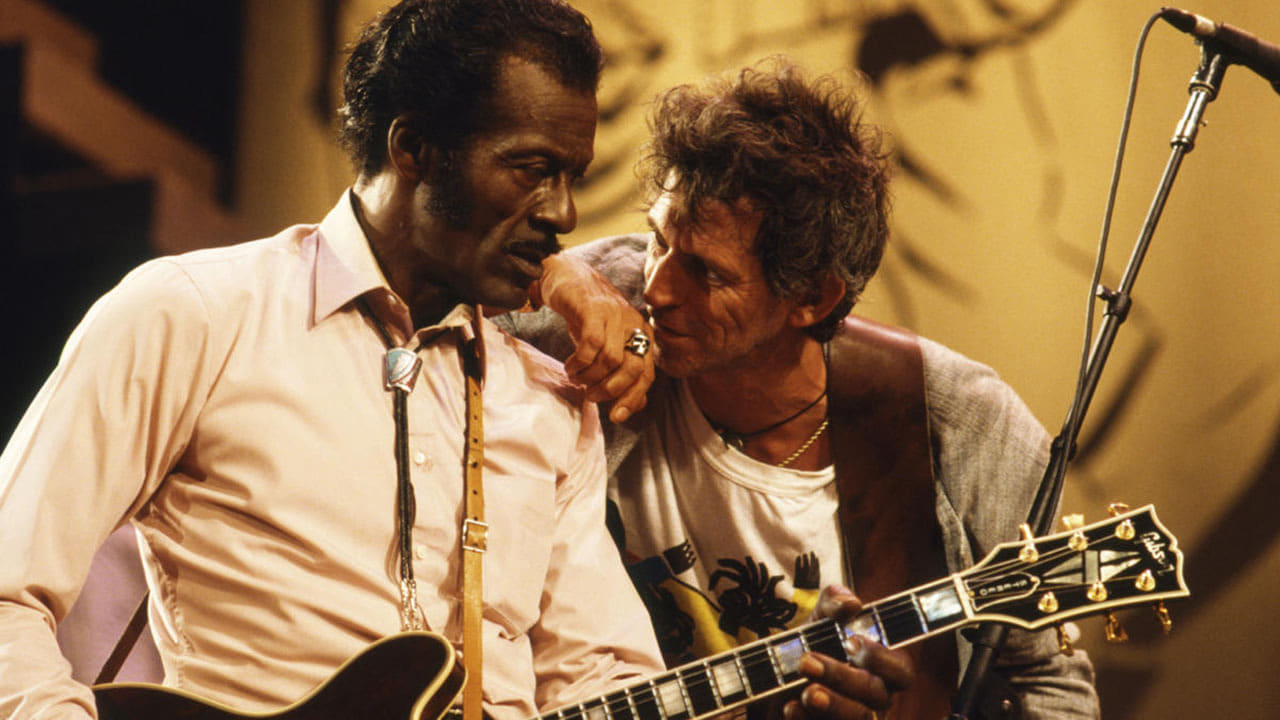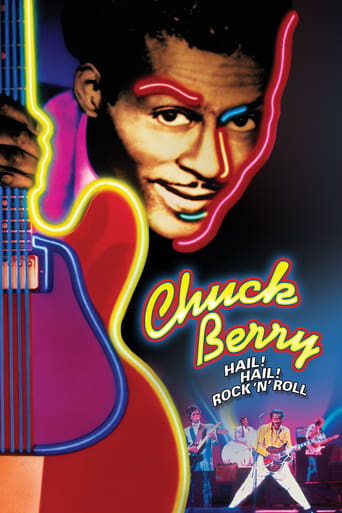

The music speaks for itself. The purpose of any documentary is to examine what's behind what we've already seen on the surface.What surprises me about the majority of reviews is the negative reaction to learning about Chuck's real personality.This is what makes it a documentary in the first place.I was born in 1964, so technically the Chuck Berry era is before my time; however, the older I get the more I am inclined to learn about the early years of Rock 'n Roll, and how it evolved. These were the years when talent was raw and pure and truly original. One of my favourite music themed movies is still 'American Hot Wax'.These years also traversed the period of segregation to civil rights. It seems most great artists of that period were often born into poverty and grew into fame and wealth. Consequently who are we to judge how many different ways an individual will evolve through these circumstances ?This is actually what I find most interesting of all about this documentary: you learn about the real man, upon which so many rumours are based, and so here we get a chance to see for ourselves. There are a few brief glimpses in the film where it appears that Chuck finally lets his guard down and he retells some of his childhood and past experiences.This era produced some powerful music from heart wrenching beginnings. If they say the blues is formed or driven or inspired by suffering, Chuck Berry's compilations, and his personal make-up are yet another example of how that history manifested itself into pop culture.
... View MoreTo hear Bruce Springsteen say he first heard Chuck Berry via the music of the Stones makes me feel ancient. I was thirteen when I first heard Chuck Berry on a car radio in 1955 jamming out "Maybelline," the first true rock song I had ever heard. This was before the King, Elvis, signed with RCA and popularized the rock 'n' roll sound for us all.In celebration of his sixtieth birthday, Chuck, with the help of friends, rocks out with many of his creations. The Berry rifts are still fast and furious but there is now an air of cynicism that was absent at the creation. Those unfamiliar with the early Berry sound should check out the original recordings to hear Chuck wail out his affirmation of youth and beauty. "Sweet Little Sixteen" was written and performed by Chuck Berry when he was thirty two years old; yet the rocker captures the innocence and lust of being young and carefree. Chuck continued through his music to invent many of the terms and lingo of the youth culture taking shape at the time. The only other recording artist of the day to even come close to Chuck Berry's lyrics of teen angst and a vocabulary to accompany it was Carl Perkins.Chuck Berry was a seminal artist in the early history of rock 'n' roll. His approach was revolutionary, not just rebellious. Listen to the words of "Roll Over Beethoven." Chuck is stating emphatically that the new movement in American music is not merely a fad as critics would have it but a complete overhaul in musical standards: "...and tell Tschaikowsky the news." One of the highlights of "Hail! Hail! Rock 'n' Roll" is seeing and hearing the three pioneers of early rock exchanging barbs and ideas with each other. Bo Diddley, Little Richard, and Chuck Berry discuss the white cover versions of black songs so prevalent in the record industry of the 1950's. Bo Diddley tries to keep an open mind about it all, for example, saying that Dick Clark couldn't showcase a mixed dance crowd on his "American Bandstand" because the producers wouldn't permit it. Little Richard interjects humor into the proceedings when he talks about white-shoes Pat Boone crooning "Tutti Frutti," making the salacious lyrics, "Awopbopaloobopalopbamboom," sound like light opera. Little Richard comments with a smile that he got over Pat Boone bowdlerizing "Tutti Frutti" only to have him expropriate "Long Tall Sally" ducking back in the alley. Chuck Berry, on the other hand, is militant and angry about the theft of property by the white record producers from black artists.Chuck Berry has good reason to be so adamant in his denunciation of the racial overtones that existed in the record business of the 50's, for he suffered not just monetary loss as a result; his private life suffered too. Chuck wouldn't talk about his run-ins with the law for director Taylor Hackford, saying that he would discuss it in its proper context but not across an office desk. Chuck made a fantastic comeback in 1964 following a prison term resulting from a setup engineered by the government. Since Chuck refuses to comment on it, we may never know for sure exactly what happened.One of Chuck's songs that stands out today is "Too Much Monkey Business." When Chuck recorded this in 1956, it represented, to my knowledge, the first rock 'n' roll protest song, several years before Bob Dylan would turn the rock world around with his protest-oriented music. Only one other protest rock song of any significance came out during the early days of rock 'n' roll. That was the Coasters' "What About Us?" not nearly as good as "Too Much Monkey Business." There are better rock concert films around, the quintessence being "The Last Waltz," but this is the only place where rock fans can get a glimpse of the legendary Chuck Berry in all his glory accompanied by some of the best musicians in the business. It's easy to understand why NASA put "Johnny B. Goode" on the Voyager Golden Record as the best example of American Rock 'n' Roll.
... View MoreTaylor Hackford's documentary chronicling rock music pioneer Chuck Berry and his return to Missouri hometown with a star-laden concert both he and Keith Richards (from the Rolling Stones) put together in St. Louis. The film doesn't probe too deeply into Berry's troubled life (including two trips to jail), but his surly, chipped-shoulder bravado and mercurial personality make for some fascinating sequences. Richards, who organized the event--a 60th birthday celebration for Berry--and plays guitar alongside Chuck, has some tense confrontations with his star and tells of several amusing moments where he nearly gave up on him. Of the concert guests, Eric Clapton, Julian Lennon, and especially Linda Ronstadt are the highlights, but Robert Cray and Etta James are disappointing. **1/2 from ****
... View MoreThis is an excellent music documentary about Chuck Berry and people who is inspired by him and his way to play the guitar. Its mix of live conserts, interviews and the scene when Chuck is teaching Keith Richard the riff for "Oh Carol" is probably the best i have seen. This is a "must see" film for anyone who likes music.
... View More